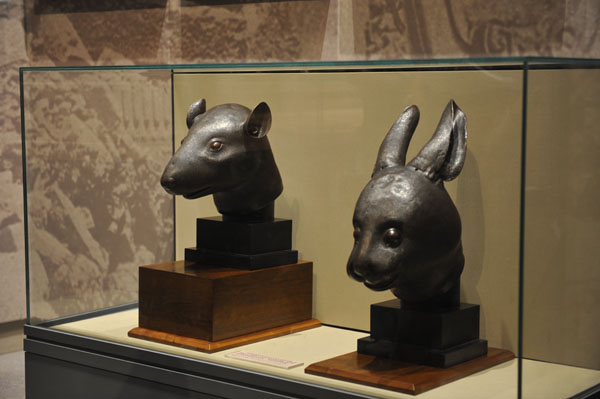 |
|
File photo of two bronze sculptures depicting the heads of a rat and rabbit on display at the National Museum of China. The two heads were returned to China in June after having been stolen by European forces during the Qing Dynasty (AD 164-1911). [Photo provided to China Daily]
|
Two bronze sculptures depicting the heads of a rat and a rabbit are on display at the National Museum of China as part of a permanent exhibition called The Road of Rejuvenation.
The two heads were returned to China in June of this year after around 150 years outside the country, having been stolen by European forces during the Qing Dynasty (AD 1644-1911).
The heads were originally part of a set of 12 Chinese zodiac sculptures from a water-clock fountain in Yuanmingyuan, or the Old Summer Palace. They were designed by Giuseppe Castiglione (also known as Lang Shining), an Italian missionary and artist in the Qing court. The sculptures were looted by British and French troops in 1860, during the Opium Wars.
They were put on auction at Christie's in 2009, despite strong protests from China. A Chinese buyer won the bidding but refused to pay.
Francois-Henri Pinault, owner of Christie's, acquired the heads at an undisclosed price and returned them to China in 2013.
The 12 zodiac symbols, or shengxiao, were recurring subjects for artists throughout Chinese history.
It was long believed that the 12 Chinese zodiacs were invented by the philosopher Wang Chong of the Eastern Han Dynasty (AD 25-220). However, researchers later found records of zodiac signs painted on bamboo strips from the Qin Dynasty (221-206 BC).
We recommend:
